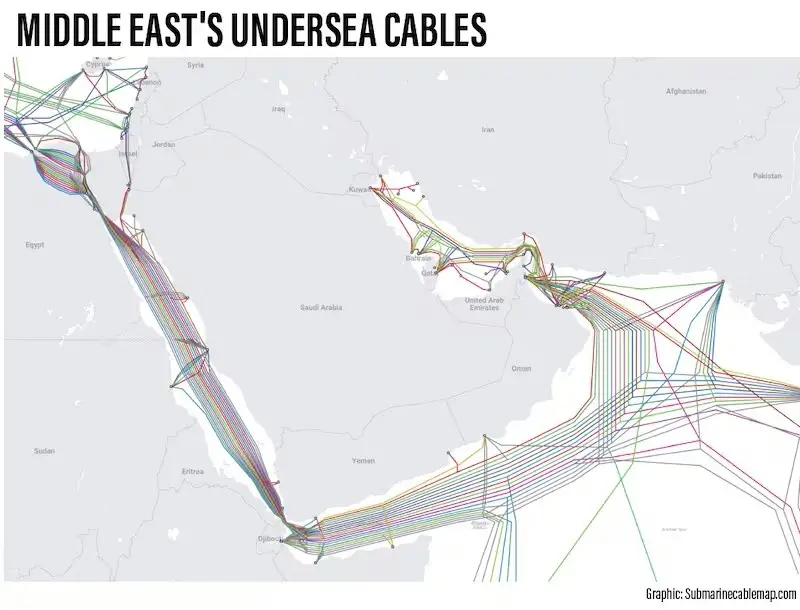Internet services slowed significantly in parts of the Middle East, India, and Pakistan over the weekend after undersea cables in the Red Sea were severed, highlighting the region’s vulnerability to disruptions in critical digital infrastructure.
Microsoft confirmed the outages degraded internet usage across several countries, with its Azure cloud services among those affected. Although services began improving by Sunday, experts warned that full restoration could take days or weeks.
The disruption hit users in the UAE particularly hard, with customers of Du and Etisalat reporting widespread slowdowns on Saturday night. Both companies acknowledged the submarine cable cuts in statements, assuring customers that technical teams were working with international providers to restore normal service. Pakistan Telecommunications also confirmed the cuts, while Saudi Arabia has not commented.
According to NetBlocks, the outages were linked to failures in the SMW4 and IMEWE cable systems near Jeddah, impacting connectivity across multiple countries. While the cause remains unclear, past incidents have often been attributed to ships’ anchors dragging along the seabed, though there are concerns about potential targeting by Yemen’s Houthi rebels.
The Red Sea is one of the world’s most vital telecom corridors, carrying traffic between Europe, Africa, and Asia. Repair operations in the area are complicated by ongoing regional instability, including repeated Houthi attacks on vessels.
Experts stress the incident underscores the fragility of global digital infrastructure. “Satellites carry less than 1% of internet traffic, while subsea cables handle more than 97%,” noted Dr. Raed AlHazme, a Saudi IT expert. “Relying solely on international infrastructure is a major risk, and digital sovereignty is not a luxury – it is a strategic necessity.”















